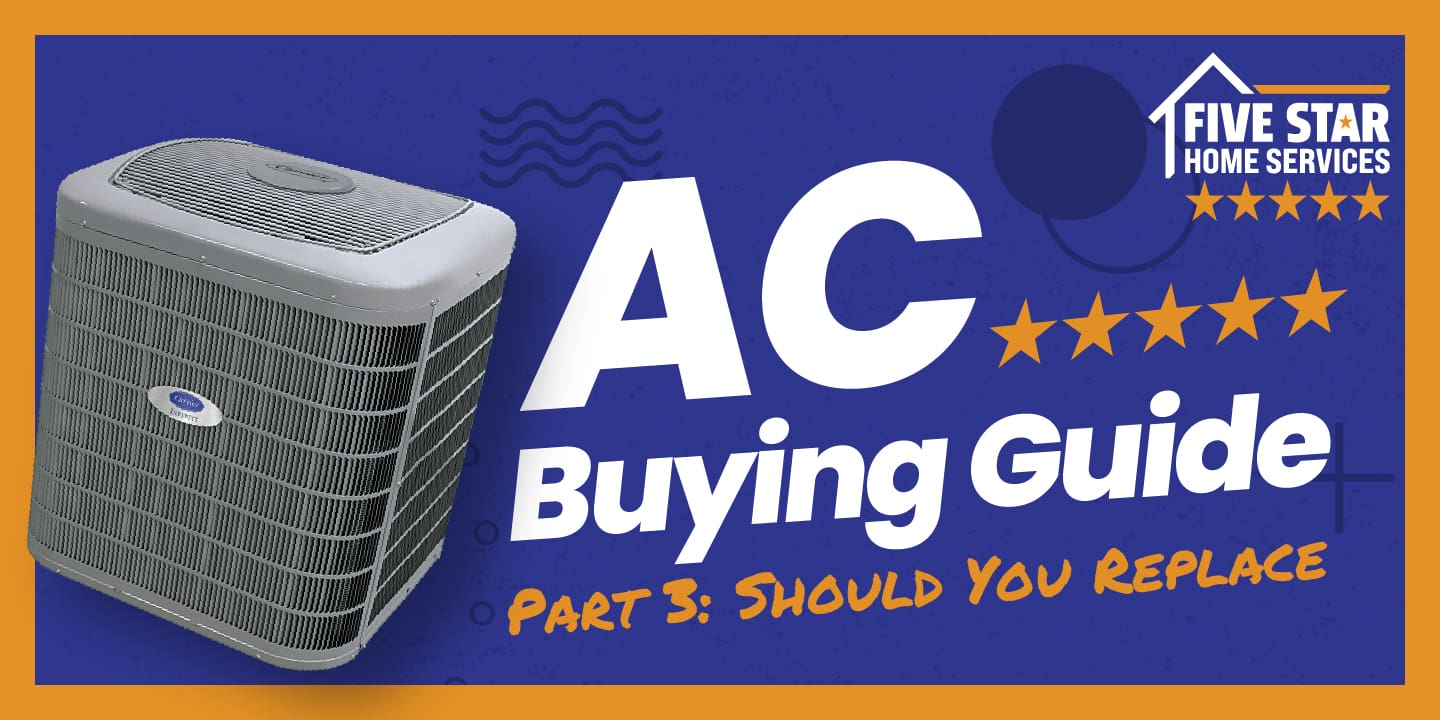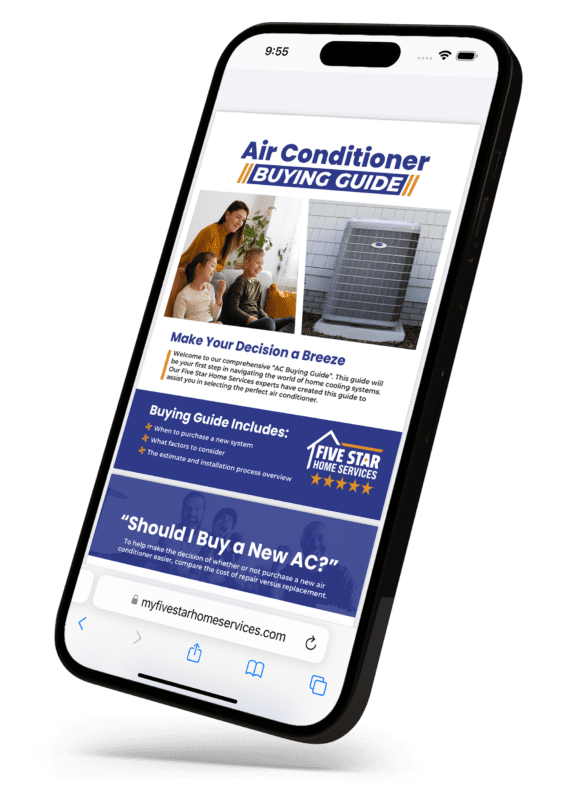Do you have an older central air conditioner that isn’t working correctly? When summer weather arrives, we all rely on our central air. There’s nothing worse than facing a decision whether to repair or replace your air conditioner, especially when it’s hot outside. This is never an easy decision! The following article discusses various factors you should consider to make the right call for you and your home.
Air conditioning systems serve our homes wonderfully until they stop working. When this happens, homeowners call an HVAC technician, hoping for a quick fix. Those hopes are often dashed when the technician informs them that their air conditioner needs a major repair.
When this happens, homeowners have a major decision to make: Should they repair or replace their air conditioner? How can they be certain which option is best for them and their homes?
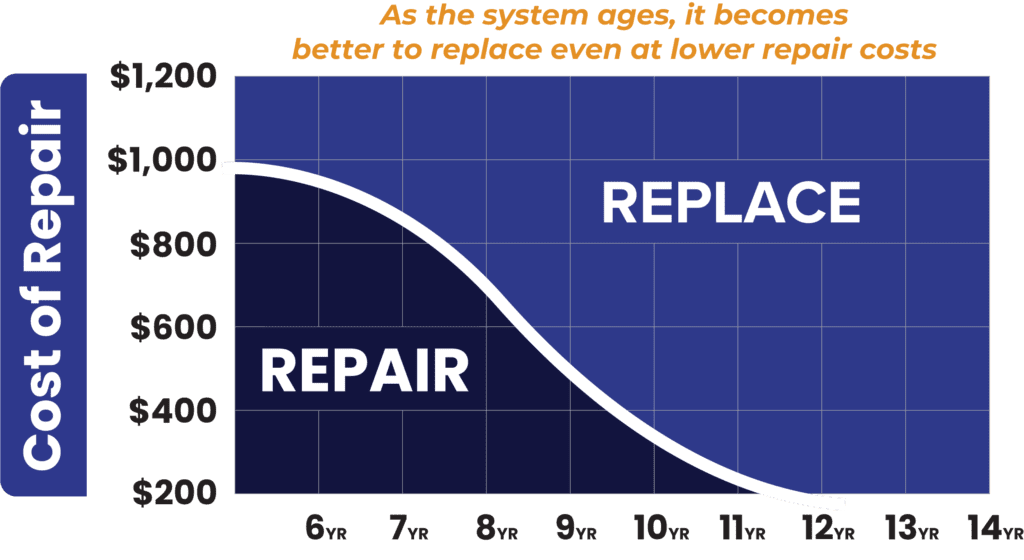
We are here to help you decide by walking you through several important factors that should go into a decision to repair or replace a central air conditioner. By the end of this article, you will understand your options and the associated costs and risks. We are here to give you confidence when you make this decision.
How Long Do Central Air Conditioners Last?
Central air conditioners can break down even a few years after installation — or up to 30 years after. Knowing the unit’s age and average lifespan of A/C systems is essential.
On average, A/C systems last about 15 years. A well-maintained system, nevertheless, should last you 20 years or more. The first key to HVAC equipment longevity is keeping everything well-maintained with regular professional service. At the same time, the average lifespan of individual air conditioner parts can be different from the system itself as a whole. We plan to look at those parts in the following before discussing how much each significant component costs to repair.
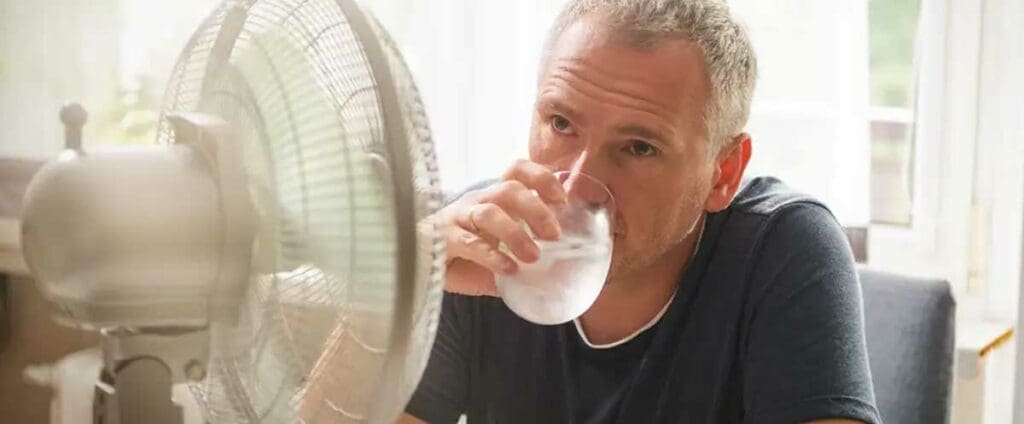
Air conditioning systems, as a whole, don’t just fail. Specific components of every type of HVAC system have higher failure rates — given normal operating conditions. As air conditioners get older, these parts begin to weaken and fail. They tend to be some of the more significant components that are far more labor-intensive. Our HVAC technicians can discuss the condition of each of these components with you.
The major components of a central air conditioning system include the following:
- The ac compressor
- The condenser/outdoor coil
- The evaporator/indoor coil
- Electrical systems are also a major part of any HVAC equipment. A/C electrical systems help all the other components — such as the capacitor, contactor, and fan motors — do their jobs.
Depending on the system, other control parts may also play an essential role in the functioning of a home cooling system.
The AC Compressor
Compressors are located inside the air conditioner. They pump the refrigerant to and from the heat-exchanging parts — such as the indoor and outdoor coils. Compressors have both electrical and mechanical parts. They can last anywhere from 12 years to 20 years.
Our HVAC field technicians have decades of combined experience. We’ve even seen compressors over 30 to 40 years old that are still pumping and working well! Compressors typically fail in one of two ways: They either get an electrical short or lock up internally. Most of them last between 15 and 20 years. Air conditioning compressors, however, can rarely be repaired.
Condenser Coil
Condenser/outdoor coils make up the outer wall of the air conditioner. They get rid of the heat that the evaporator has absorbed inside itself. A/C condensers usually have a very low failure rate. Because of this, they have a much longer average lifespan. Although needing to replace an outdoor coil is rare — the cost is similar to that of an evaporator.
Evaporator/Indoor Coil
Evaporator/indoor coils usually sit on a furnace or inside the air handler. They absorb heat from the house and send it to the compressor. Most evaporator coils today are made of copper, steel, and aluminum. They can start leaking refrigerant as early as 12 years. However, most of the time, it is between 15 and 20 years when they start leaking.
How Much Does it Cost to Repair an Air Conditioner?
Have you ever had a mechanic tell you there’s a problem with your car and it might fail before too long? If you’re like most people, you probably want to know if it needs to be taken care of immediately. We are often told it doesn’t, but the mechanic can’t tell us how long it will be before the problem needs immediate attention.
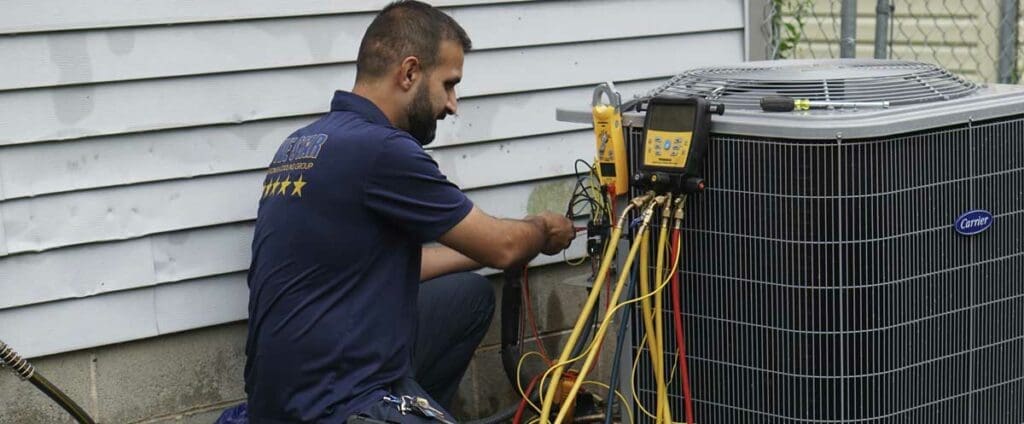
This same scenario is often true for HVAC repair, especially A/C repair. So we leave the car shop (or HVAC repair appointment) without having to pay a lot of money at that time. Nevertheless, there is a problem with this approach. This problem includes the following:
- You’ll likely become worried whenever there is a weird noise, grind, or bump.
- The need for repairs is now in your mind and becomes a source of worry.
- On the flip side, if you get it repaired, you will feel more confident and have peace of mind.
The situation is much different, but nevertheless, if you have a breakdown, the experience of not having a car—which is essential for most people—is bad enough that you’ll likely do whatever you can not to have to go through it again.
If there are other problems with the car, however, you will likely decide on one of several options:
- Get them all taken care of and have a much lower chance of problems.
- Take care of only the most prominent issues and deal with it when necessary (kicking the can further down the road).
- Make the decision to replace it.
Similar to the illustration above, there are very important considerations when deciding whether to repair or replace your air conditioner. Cost is a major one. For your information, below are some of the average costs of many of the components listed:
- Smaller components: $300 to $800
- Evaporator replacement: $1,500
- Compressor replacement: $2,000
- Condenser replacement: $1,700
Failure with any of these A/C components can lead to a repair vs. replacement dilemma. In the following, we’ll look at other factors in the cost equation: such as air conditioner efficiency.
How Efficient Is My Current Air Conditioner?
Energy bills, and especially home cooling costs, can become a real thorn in your side if your air conditioner is either old or in disrepair. Although cleaning and maintenance performed by a licensed technician like Five Star Home Services can help — some signs of age, including efficiency, cannot be fixed without a full replacement.
An air conditioning’s efficiency is measured by SEER Rating. This stands for Seasonal Energy Efficiency Ratio. It’s a measure of the heat removed relative to the total energy consumed by the unit. Think of it similar to the miles per gallon in a car. The more efficient the car is, the better the gas mileage. The more efficient the air conditioner, the better the SEER rating.
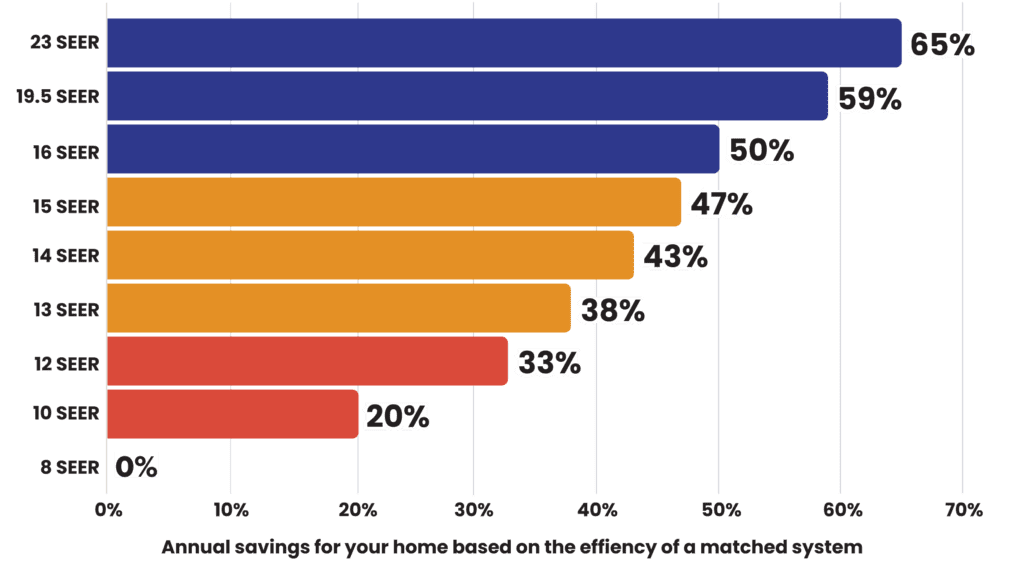
SEER ratings start at about eight and goes up from there. Although there isn’t a maximum, the most efficient centralized air conditioners usually run in the 20 to 25 SEER range. During the 1990s, the laws changed and required all new AC systems be at least 10 SEER. This went up in 2006 (13 SEER minimum) and again in 2015 (14 SEER minimum, or 14.5 in the southwest region of the country).
This means the older the system, the more likely it will be inefficient relative to a new cooling system. This has a major effect on your electrical usage and utility bills.
If your home’s electric bills are higher than you’d like, replacing the system can certainly help. It is good to have an idea of how much this can help, however, so your expectations are fairly accurate. Knowledgeable HVAC representatives can quantify your savings over a period of time — based on the new unit’s efficiency compared to your existing system.
Does My Current Air Conditioner Meet My Needs?
In addition to the equipment’s age and cost, you should also ask yourself these questions:
- Is my air conditioner noisy or does it vibrate?
- Does my air conditioning system dehumidify my house well?
- Is my unit too close to a feature in the yard, such as a deck or other structure, preventing other projects or generating noise?
- Is my AC unit an eyesore?
Although all of these might not always be pertinent factors in a decision to repair vs. replace — many of them can be, depending on your current situation.
In fact, answering these questions can lead to different types of solutions. For example, a new air conditioner might be the solution if your home feels too humid during the summer. However, depending on the situation, you might also be better off with a whole-home dehumidifier. As always, having a knowledgeable HVAC representative like Five Star Home Services is a huge plus. We can walk you through all of your options. Additionally, it is essential to know about each beforehand.
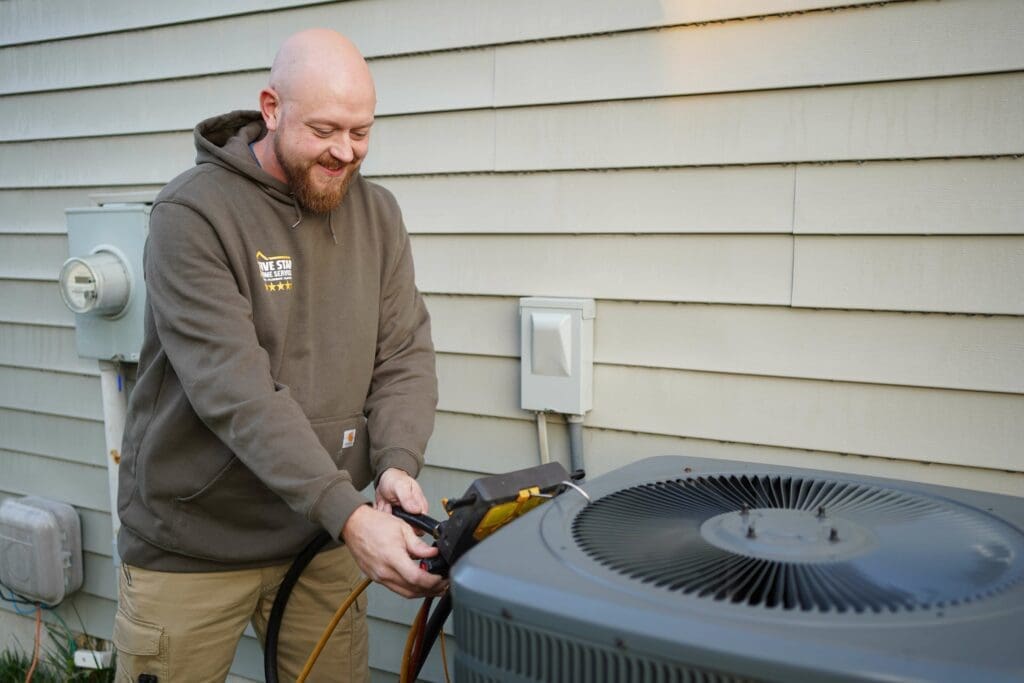
Additionally, noise can be an issue. There are many components that can affect noise levels. You could have low refrigerant, noisy electrical components, a slightly bent fan blade, or a loud compressor. Each one of these parts can be replaced. However, the replacement cost must be weighed against this article’s other factors.
If you learn that it’s not just a single part causing the noises, sometimes making repairs is your best option. However, if it’s system-wide, newer systems tend to run much quieter than their older counterparts. In the past, we have even had homeowners say their new system isn’t running properly simply because it’s a lot quieter than their previous system!
Locations can also affect noise levels — especially if the A/C unit is near somewhere you gather, such as a patio or deck. Moving a new system a little further away from a deck or other feature sometimes makes the noise significantly less. Moving a central air conditioning system can be challenging and risky, especially with older systems. However, it is yet one more option for a thorough HVAC company.
Last but not least, years of wear and tear and rust can wreak havoc on your system, making it a sore sight. Most homeowners take pride in their homes. They want their HVAC equipment to match. They take care of their yard and home. Although this is an aesthetic consideration, not one related to the air conditioner’s operation, it still matters. We at Five Star Home Services want your home to look the best outside while you enjoy optimal comfort inside. We want you to enjoy comfort and peace of mind!
Benefits of Replacing My Air Conditioner
Although there are countless scenarios in which it makes more sense to repair a system, the benefits of replacing it should also be considered. The benefits of AC replacement include the following:
- New systems look better
- Your house will be more comfortable
- They run a lot smoother and, hence, quieter
- You deal with less stress from the old system
- Higher efficiency, and thus reduced cost, from your air conditioner
- You’ll have a long-term warranty for parts and potential labor
These factors can help you make your decision. Either way, we at Five Star Home Services are here when you finally do decide to replace the air conditioner.
Do You Need to Replace or Repair Your Air Conditioner?
As your local HVAC provider, we love getting any system running to its fullest potential! However, sometimes a repair is not necessary when a replacement is more feasible.
When it comes down to it — it’s entirely up to you whether you decide to repair or replace your central air conditioning system. You should never feel like a professional is pushing you one way or another. We advise and educate you on all of your options. Although we might give you our opinion, we will never use sales pressure tactics to do more than that. We want you happy with our services!
Whether you decide to repair or replace, we at Five Star Home Services are here to take care of your air. Just give us a call. If you decide, however, to start the replacement process, we also strongly encourage you to call us!
Next Steps
We can set an appointment right away for one of our friendly residential sales professionals to come over and perform a load calculation before reviewing all of your options.
At Five Star Home Services, we take pride in doing the work thoroughly the first time, every time. Whether it’s a repair or replacement, we have the expertise and knowledge to get your system working quietly and efficiently to provide maximum comfort to your home.
If you’re in Columbus, Dayton, Cincinnati, OH, or the surrounding areas, call us! We’d love to discuss your options and help you meet and exceed your indoor cooling needs. Get started with a quote today!

